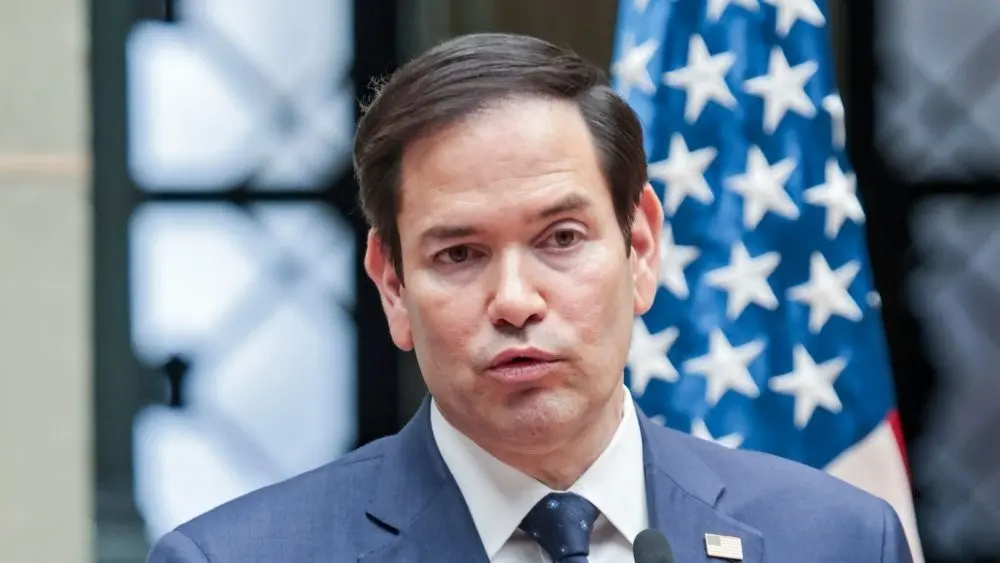As officials from the United States, Ukraine and Europe continued intensive negotiations in Geneva this weekend over the peace proposal from the U.S. aimed at halting the nearly three-year war in Ukraine, Secretary of State Marco Rubio described the latest round as the most “productive” to date.
Rubio said the delegations were working through revisions in hopes of narrowing remaining disagreement, with top U.S. officials — including Army Secretary Daniel Driscoll, envoy Steve Witkoff and senior national security advisers — meeting with Kyiv’s representatives as President Donald Trump signaled that further bargaining was still possible.
Rubio said that “I think this was a very, very meaningful – I would say probably best – meeting and day we’ve had so far in this entire process, going back to when we first came into office in January. But there’s still some work left to do and that’s what our teams are going to be doing right now … We’re making some changes and adjustments in hopes of further narrowing the differences and getting closer to an outcome that both Ukraine and the United States can be comfortable with,” Rubio said, promising updates after additional meetings.
Similarly, Andriy Yermak, Zelenskyy’s chief of staff, said after meeting with Rubio that “We have very good progress and we are moving forward to the just and lasting peace.”
Following a call with French president Emmanuel Macron later on Sunday, Ukrainian President Zelenskyy posted that “our teams in Geneva are working with partners, and it is very important that there is a practical result and that it brings Ukraine and all of Europe closer to reliable peace and security.” Zelenskyy also addressed the U.S. and Trump, saying in part “we count on our partners to hear our arguments. The leadership of the United States is important, we are grateful for everything that America and President Trump are doing for security, and we keep working as constructively as possible,” writing in part that “the crux of the entire diplomatic situation is that it was Russia, and only Russia, that started this war, and it is Russia, and only Russia, that has been refusing to end it throughout the full-scale invasion.”
The draft 28-point peace plan shared with both Ukraine and Russia includes highly contentious measures: ceding additional territory in the Donbas, recognizing Crimea, Luhansk and Donetsk as Russian, sharply reducing Ukraine’s military and blocking any future NATO membership. It also calls for Moscow’s reintegration into global institutions, including a return to the G8. Critics in Washington and Europe have warned the terms resemble Russian demands rather than a balanced settlement.
Confusion over the proposal’s authorship deepened the debate. Some lawmakers said it reflected a “wish list” from Moscow, but the State Department insisted it represents the Trump administration’s position, informed by input from both Kyiv and the Kremlin. Ukrainian officials have struck a cautious tone, saying the plan contains elements aligned with their priorities but still requires significant changes.
Despite public friction — including Trump’s criticism of Ukraine and European allies — Zelenskyy has emphasized continued engagement, urging partners to strengthen air defenses amid ongoing Russian strikes and stressing that any agreement must provide durable security.
Moscow, meanwhile, has publicly acknowledged receiving the proposal. Russian President Vladimir Putin told his Security Council, “I believe that it could also form the basis for a final peace settlement, but this text has not been discussed with us in detail,” adding, “I believe the reason is the same: the U.S. administration has not yet managed to secure the agreement of the Ukrainian side, as Ukraine is opposed to it.” He also claimed, “Apparently, Ukraine and its European allies are still under the illusion that they can inflict a strategic defeat on Russia on the battlefield.”
U.S. officials say additional meetings — including one with Russian representatives — are expected as diplomacy accelerates. Whether the proposal can be reshaped into a mutually acceptable agreement remains unclear, but negotiators on all sides say time and battlefield realities are tightening the pressure for a breakthrough.
Editorial credit: Daniel Hernandez-Salazar / Shutterstock.com
